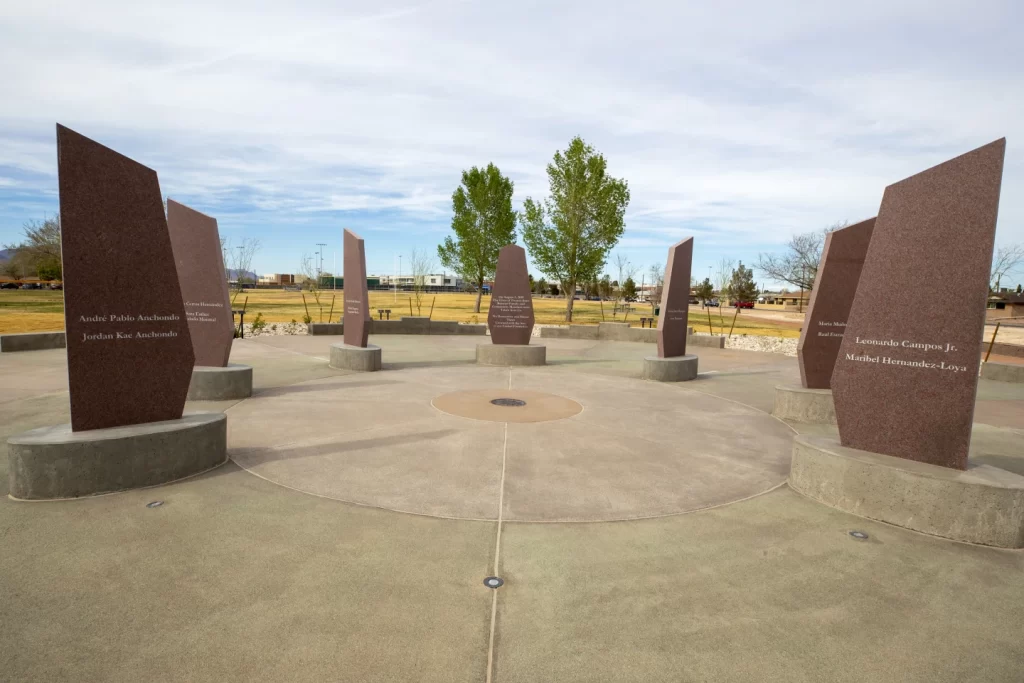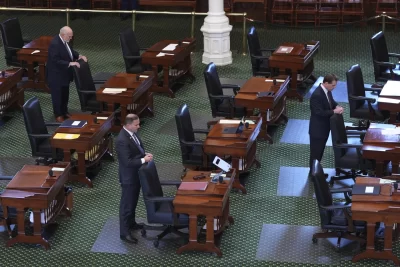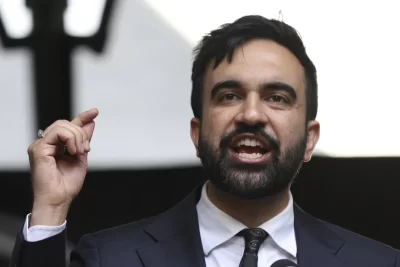
The gunman who killed 23 people in a racist attack targeting Hispanic shoppers at a Walmart near the U.S.-Mexico border in 2019 would avoid the death penalty under a plea offer announced Tuesday, abruptly ending years of efforts by prosecutors to see that he face execution by lethal injection.
El Paso County District Attorney James Montoya said during a news conference that his decision in the prosecution of Patrick Crusius, who drove across the state for one of the deadliest mass shootings in U.S. history and posted a racist screed just before opening fire, was driven by a majority of victims’ relatives who wanted the case behind them.
“This is about allowing the families of the 23 victims who lost their lives on that horrific day — and the 22 wounded — to finally have resolution in our court system,” Montoya said in a statement.
“Now, no one in this community will ever have to hear the perpetrator’s name ever again,” he added. “No more hearings. No more appeals. He will die in prison.”
But Montoya also acknowledged at the news conference that not all families agreed with the reversal by his office, which under previous leadership had committed to taking the case to trial and seeking the death penalty.
Adria Gonzalez, a survivor who helped panicked shoppers toward exits, said she feels that not pursuing the death penalty is “a slap in the face for all the victims.”
Under the offer, Montoya said, Crusius would plead guilty to capital murder and receive life in prison with no possibility of parole. The plea hearing and sentencing is set for April 21, Montoya said, and families will be able to give victim impact statements.
Mark Stevens, an attorney for Crusius, did not immediately respond to a message seeking comment.
Crusius, 26, was already sentenced to 90 consecutive life sentences at the federal level after pleading guilty in 2023 to hate crime charges. Under the Biden administration, federal prosecutors also took the death penalty off the table.
Montoya said he supports the death penalty and believes Crusius deserves it. But he said he met with the families of the victims and while some were willing to wait as long as it took for a death sentence, there was an overriding desire to conclude the process.
“I’m just glad it’s over,” said Elise Hoffmann-Taus, whose father, Alexander Hoffmann was among those killed. “This is the outcome I wanted.”
Montoya, a Democrat who took office in January after defeating a Republican incumbent appointed by Gov. Greg Abbott, is the fourth district attorney to oversee the case.
His predecessor, Bill Hicks, said following the announcement that while he had been ready to take the case to trial and pursue the death penalty, he could not fault Montoya’s reasoning behind the plea offer.
“It is not the reasoning I would have followed,” Hicks said. “I know that it was very hard for him, and I respect that it was a very difficult decision.”
Crusius, who is white, was 21 years old and had dropped out of community college when police say he drove more than 700 miles (1,100 kilometers) from his home near Dallas to El Paso.







